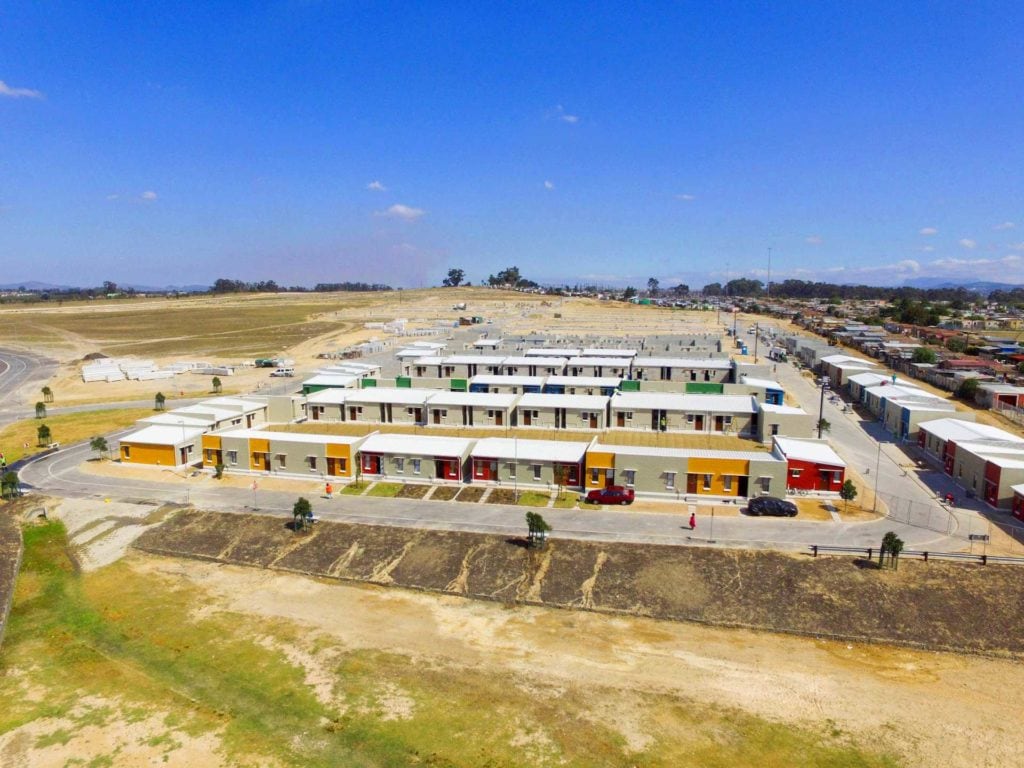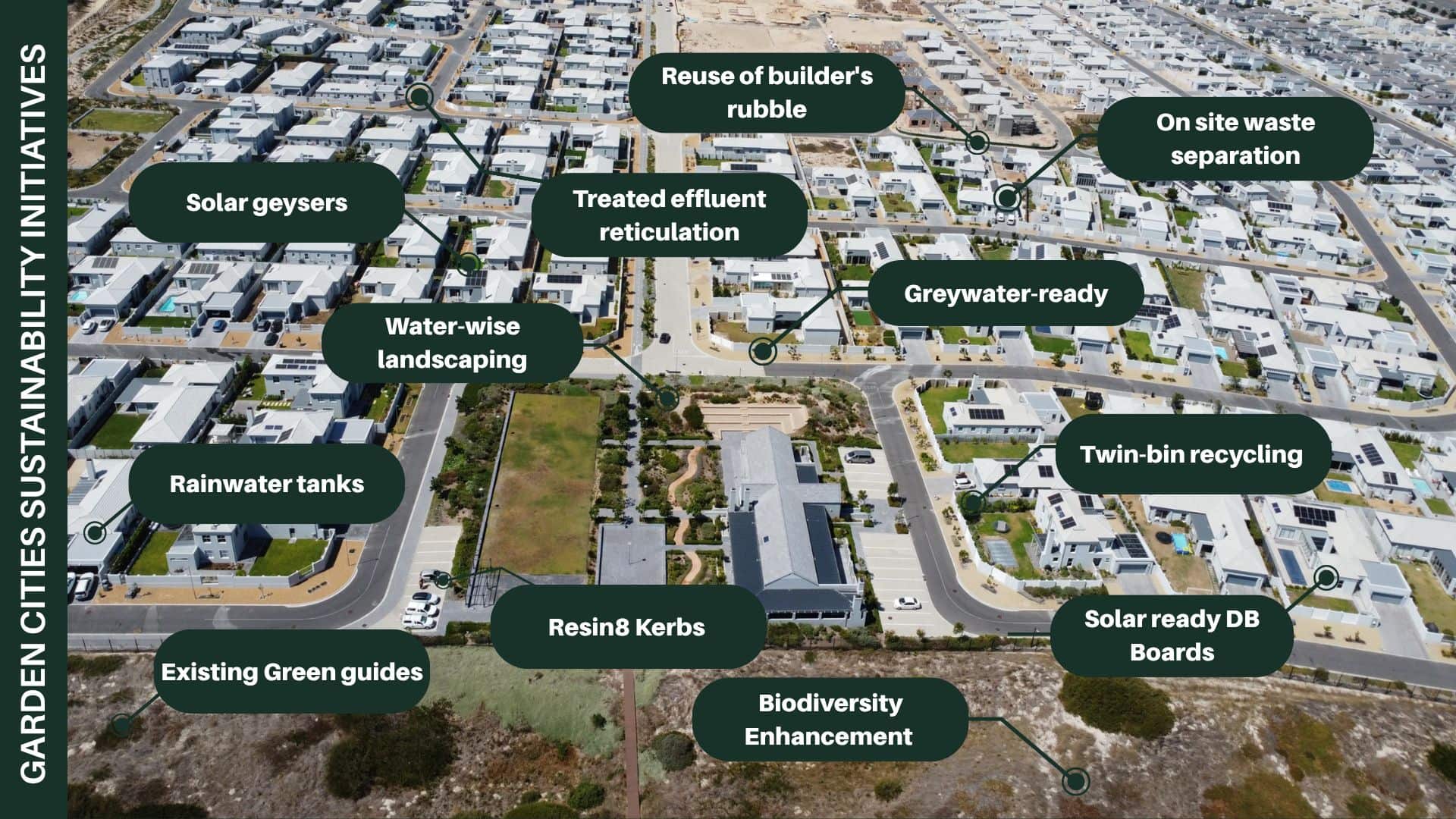With prescience, and a built-in viewfinder focused on future needs and conditions, Garden Cities had, before the onset of the current difficult times, already moved more assertively into creating new models for a living environment.
Not only has it been vigorously striving to enable home ownership for the province’s historically deprived people but forward planning of existing suburbs is already responding to different priorities. These include more compact living, greater conveniences and easier access to workplaces. And a resulting financial advantage for homebuyers.
While a great deal of the new initiatives will show in Greenville Garden City, launched in 2016 as a development to serve the entire economic spectrum, it’s in Sunningdale, the company’s 26-year-old West Coast flagship suburb, that other major aspects of change will become visible.
In its increasing tendency to enter joint-venture partnerships with other entrepreneurs in many different spheres, the company joined forces with Rallim Preparatory in 2017 to create a progressive education environment in a now highly successful, ground-breaking school on Berkshire Boulevard, the main artery through Sunningdale.
The extension of Rallim Preparatory School’s campus to accommodate an increasing number of admissions, coincides with major development on the Berkshire Boulevard streetscape. Group CEO John Matthews, says the changes occurring on this northern point of Sunningdale, epitomise the company’s holistic approach to the development of its suburbs, which includes the provision of a comprehensive infrastructure for residents far into the future.
Included in this new development node is the 180-apartment estate, Saint Square, a joint venture by Camalus Developments and Garden Cities who have a long-standing working relationship. Saint Square will be the first of several secure apartment estates planned for new phases of Sunningdale, in line with a market demand for more compact, accessibly priced, secure, easy-living homes.
‘Now, in our second century we are further future-proofing our suburbs with planning that makes provision for better use of everything from land allocated for residential purposes, to reviewing the principal functions of major arterial thoroughfares’.
An urban planning proposal is under way to ensure that this fast-developing sector meets both Garden Cities’ and the City of Cape Town’s key principles for creating efficient and attractive living environments that make optimal use of available space.
Dominated by the Table Bay Mall, where Berkshire Boulevard and the West Coast Road intersect, this point of Sunningdale is developing rapidly with the introduction not only of new residential extensions, but also an internationally recognised music academy, a large self-storage facility and a service station with satellite amenities.
A sports centre is also planned on land set aside by Garden Cities as part of the company’s provisions for a wide variety of services, health and education facilities and retail premises.
Now, too, Greenville the newest of Garden Cities suburbs launched in 2016, moves forward with the development of first-time homebuyer, bonded properties. This follows the initial stage of development – a public/private partnership with the City of Cape Town and Provincial Government – which concentrated on providing fully-funded Breaking New Ground (BNG) homes.
Four showhouses will be built to showcase the new bonded housing sector. The homes are also intended for people with incomes that will qualify them to benefit from FLISP, the Finance Linked Individual Subsidy Programme that provides a housing subsidy for first-time home buyers to assist with buying a home. Households with an income between R3 501 to R22 000 may qualify for the FLISP subsidy on a sliding scale of benefit, if they meet all the criteria.
‘We cannot be sure of the immediate future until we are able to come to terms with this devastating pandemic. But Garden Cities will hold steadfast, and pull through in the end, as it has done in former times of upheaval that have included a world war, massive global financial melt-downs, a complete change of government and its subsequent crises,’ says John Matthews.





